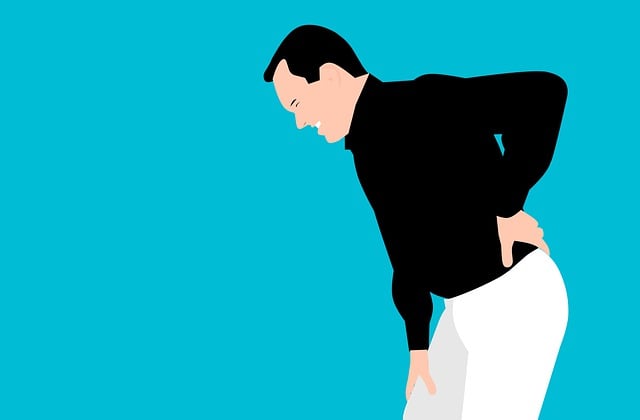
04 Jan How are poor sleep and lower back pain related? (Yoga in Heston)
Lower back pain is very common and it affects individuals of all ages. According to the 2015 Global Burden of Disease Study, 7.3% of the global population — or 540 million people — experience activity-limiting lower back pain at any one time, and this symptom is the leading cause of disability worldwide.
Certain lifestyle factors are associated with a higher risk of lower back pain. These include physically demanding jobs, smoking, obesity, and low levels of physical activity.
However, in most cases, it is not possible to pinpoint the specific cause of lower back pain. In a small percentage of cases, lower back pain can be attributed to cancer, a vertebral fracture, an infection, or an inflammatory disorder.
Several studies have shown that poor sleep quality and lower back pain are correlated.
A cross-sectional study conducted among 9,611 participants concluded that lower back pain is associated with short sleep duration and poor sleep quality.
In another study, researchers assessed sleep quality and pain intensity in 80 patients with lower back pain. They observed that a night of poor sleep quality was followed by a day with higher pain intensity.
Furthermore, a day with higher pain intensity was associated with a decrease in the subsequent night’s sleep quality, suggesting a bidirectional relationship between sleep quality and pain intensity in patients with lower back pain.
Although previous research has shown that poor sleep quality is common in patients with lower back pain, the causal relationship between sleep quality and lower back pain remains unclear.
Now, researchers at Zhejiang University School of Medicine conducted a study to investigate the causal relationship between sleep disturbances and lower back pain. Their findings appear in Frontiers in Neuroscience.
A genome-wide association study (GWAS) involves scanning the genetic material of a large number of people to identify genes associated with particular traits.
Dr. Ge Luo and his colleagues obtained self-reported data and genetic information from a GWAS including 336,965 individuals of European ancestry. The data for the GWAS came from the UK Biobank — a database containing genetic and health data from half a million individuals across the UK.
To assess the causal relationship between sleep disturbances and lower back pain, the researchers selected individuals from the GWAS cohort who had genetic variants associated with the following types of sleep disturbances:
- insomnia
- short sleep duration
- long sleep duration
- daytime sleepiness.
The researchers then used a type of statistical analysis known as Mendelian randomization analysis to estimate the causal effect between different sleep disturbances and lower back pain.
Based on the results of these statistical analyses, the researchers concluded that there is a bidirectional causal relationship between insomnia and lower back pain, which means that insomnia can cause lower back pain, and vice versa.
They also found that a genetic predisposition to short or long sleep duration did not increase the risk of lower back pain.
Finally, the researchers found that a genetic predisposition to lower back pain could increase the risk of daytime sleepiness, but they found no reverse causal relationship.
To date, lower back pain is primarily treated using analgesics. If the hypothesis that insomnia causes lower back pain is true, then sleep regulators may potentially be used to manage lower back pain.
Dr. Jie Sun, a pain physician at Peking University who has explored the bidirectional relationships between sleep disorders and pain, not involved in the current study, told MNT that certainty regarding the effectiveness of existing interventions for lower back pain is low to moderate, and novel treatments are “desperately required” for patients living with both sleep disturbances and lower back pain.
Dr. Sun expressed optimism that “understanding the underlying mechanisms of how sleep disturbance interplays with chronic pain is likely to lead to better-directed treatment.”
Dr. Luo’s research implied a possible causal relationship between insomnia and low back pain, which is consistent with the meta-analysis of longitudinal studies’ findings that a decline in sleep quality and quantity was associated with a two- or three-fold increase in the risk of developing pain condition,
“Considering the possible causal relationship from insomnia to low back pain, interfering the sleep or related pathway might be an optional way to suppress the low back pain.”
– Dr. Jie Sun

No Comments